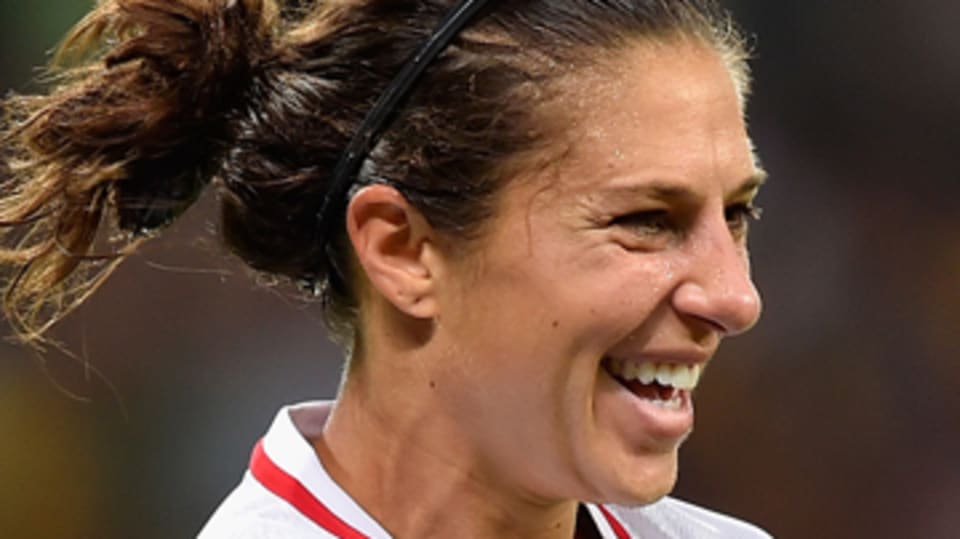Carli Lloyd sets sights on retirement post-Tokyo Games
Double Olympic champ says she hopes to end her career by reclaiming the Olympic title for Team USA

U.S. Women's National Team striker Carli Lloyd says she will likely retire from football after next year's rearranged Tokyo 2020 Olympic Games.
The 38-year-old, who will make her fourth Olympic Games team if selected, has 294 international caps for the USWNT. She was part of the U.S. squads that won gold at Beijing 2008 and London 2012 and which suffered a surprise quarter-final defeat at Rio 2016.
"My long-term goal is to make another Olympic team and win another Olympic gold medal," she told the 'My Sporting Mind' podcast.
"Hopefully that dream can come true next summer and then I'll probably get a little taste of retirement and the next chapter."
The U.S. secured qualification for Tokyo in February.
Lloyd has scored 123 international goals, making her the USWNT's fourth-highest goalscorer all-time.
One of them was the winning – indeed, only – goal in the Beijing 2008 final against Brazil, which Lloyd scored in the sixth minute of extra time.
However, she only played a peripheral role for the USWNT at last year's FIFA Women's World Cup.
When she is done playing, Lloyd – a two-time World Cup winner – says she intends to stay in football.
"I think that’s sort of the plan, to stay involved in the game," she said.
"When the time comes for me to walk away from the sport I will hold my head high because I know in my heart that I left it all out there, gave everything I had and did everything possible to be the best and most complete player I could be."
Gender equality
Lloyd, like her USWNT teammates, have been at the forefront of an ongoing fight to be paid by the United States Soccer Federation equally to their male counterparts.
She was one of five members of the USWNT who brought the USSF before the Equal Employment Opportunity Commission ahead of Rio 2016. The team continues to challenge U.S. Soccer in court.
In a recent interview with the Olympic Channel show The Corner, Lloyd said:
"We all have a voice. I'm all about pushing for things, wanting to make things better. Collectively, our team is doing a phenomenal job of being united on that front and doing what we can to to help make things better."
A number of football associations around the world, including in Norway, Australia, New Zealand, England, and Brazil, have committed to paying their women's national players the same as the men.
